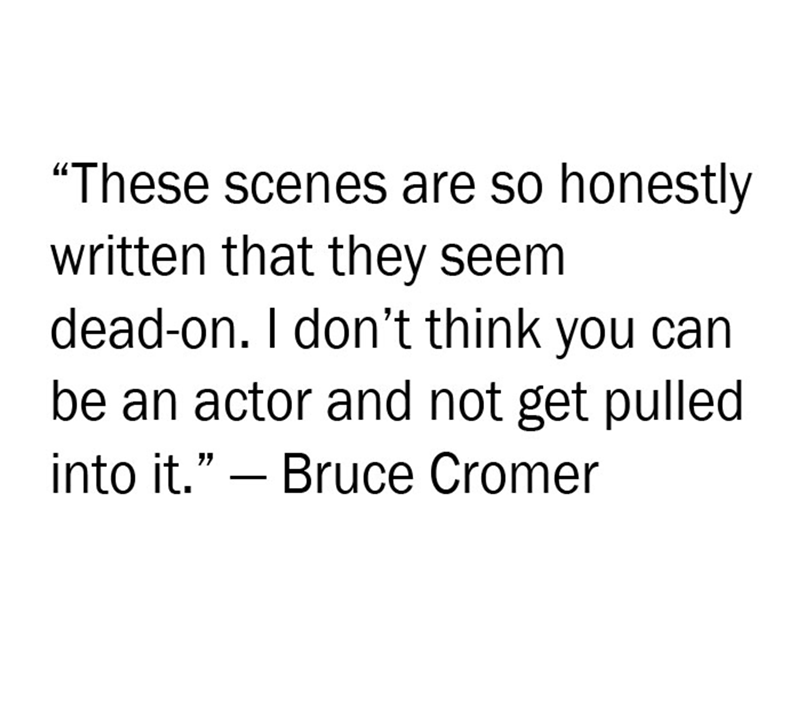Some plays become classics because they last across time — Shakespeare’s plays are still produced after 400 years. That’s what’s usually onstage at the Cincinnati Shakespeare Company, but they also dig into more recent “classics,” qualified by elemental stories that burn fiercely. Such is the case with Arthur Miller’s Death of a Salesman. It earned sterling credentials immediately, capturing the 1949 Pulitzer Prize for drama and the Tony Award for best play. It’s a powerfully compelling work about fathers and sons — a play to which attention must be paid.
In Cincinnati Shakespeare’s upcoming production, actor Bruce Cromer is eminently qualified to play the iconic role of the beaten-down, worn-out Willy Loman, 63, a man who has aspired to the American Dream but never quite achieved it. At the end of a long, plodding career, despite recurring, exaggerated recollections of success that never really happened, he’s hard-pressed to carry on. The title foreshadows Willy’s destination.
Starting Friday, Cromer returns to Salesman for the third time. His first experience was at the Alabama Shakespeare Festival in 1986, as Willy’s younger son, Happy, a restless womanizer who has lived in his older brother’s shadow.
Veteran actor Charles Antalosky played Willy in Alabama. Cromer fondly recalls him as a mentor. “He played Falstaff, I was Prince Hal; he did Sir Toby Belch, I was Sebastian; he was Friar Lawrence, I was Romeo,” Cromer says. “He was perfect for Willy — tremendous compassion and emotional accessibility. When he switched from himself to Willy, he played with total courage, tapping into a fear that all actors feel — ‘I don’t deserve this part!’ — to bring pain to his performance.”
In our phone conversation, Cromer stopped more than once to collect his emotions, recalling Antalosky’s performance. He so admired the veteran actor that he named his first son Charlie.
In 2002 at Dayton’s Human Race Theatre Company, Cromer was in another production of the show, this time as Biff, the older son, a high school football star who Willy envisioned on a path to a successful career that isn’t materializing. Thirteen years later, at 58, Cromer, now approaching Willy’s age, has a very different take on the central role.
“I’ve always seen it from the son’s side,” Cromer says. “I tended to judge Willy from that point of view. ‘Oh, he’s deluded. He’s gone a little bit crazy.’ ”
Now that Cromer is a father to an adult son (Charlie is in grad school), he understands a father’s wishes and hopes. “You want your son to do better than you did,” Cromer says. “And you also want his love and respect. That’s what Willy wants. But Biff has learned his father’s not God, and it’s tough for Willy to get his equilibrium back.”
“I have to take stuff I’ve been handed in my life and magnify it,” he says of playing Willy. He was a good, quiet son of a very combative father. “It was a rough house to grow up in. That comes out of your pores when you do a play like this. These scenes are so honestly written that they seem dead-on. I don’t think you can be an actor and not get pulled into it.”
The moments when the Loman family comes together are when, as Cromer puts it, “the crap hits the fan.” Those four-cornered exchanges between Willy, Linda (Annie Fitzpatrick), Biff (
Justin McCombs
) and Happy(Jared Joplin)
“There should be gasps of recognition as they unfold,” Cromer says. “People watching will think, ‘Don’t say that! Oh, you said that! I said something like that once.’ Those kitchen scenes so charged for audiences, you know it’s a real family. There are things you wish you’d never said, because they can never be taken back. Things could be healed if you had let go of your ego and said the right thing at the right moment. But Miller takes it where it should go, and you don’t want it to go there.”
That theatrical honesty drives Death of a Salesman.
Cromer recalls “grown men weeping in the audience” during the Alabama production. “You’d hear this heartrending male voice, the groan of a man who hoped to be a breadwinner, who’s tried and failed to support his family,” he says. “You’ve got the American Dream and the American Tragedy right there.”
It will make for serious drama at Cincy Shakes through Nov. 7.
CONTACT RICK PENDER: [email protected]







